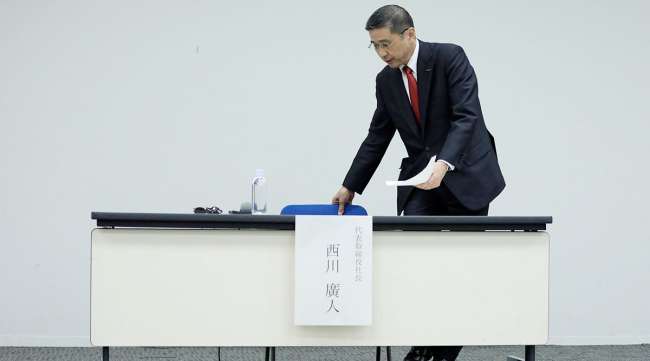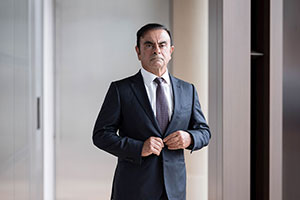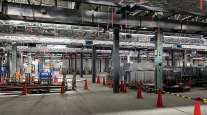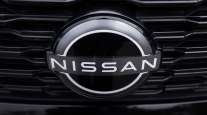Nissan Holds Off on Picking Ghosn Successor as Tensions Brew

Nissan Motor Co. will split chairman duties among its executives, putting the brakes on naming a successor to Carlos Ghosn as the pay scandal that landed the high-flying executive in a Tokyo jail widens to include the automaker itself.
The board met Dec. 17 to decide on a successor for Ghosn, who was ousted as chairman the same week he was arrested on allegations of understating his pay and misusing Nissan’s assets. Instead, directors appointed a committee to look into governance at the automaker, which was indicted along with Ghosn by Japanese prosecutors last week.
The Nissan board may wait for the committee’s comments before naming a new chairman, Chief Executive Officer Hiroto Saikawa told reporters Dec. 17. The committee will give its recommendations by March 2019, almost four months after the Nov. 19 jailing of Ghosn and his hasty ouster as Nissan’s chairman three days later.
The delay stands in contrast to Nissan’s conduct immediately after Ghosn’s arrest, when Saikawa convened a press conference the same evening to angrily condemn his former mentor’s actions. It also comes as the carmaker faces increasing pressure from Renault SA, its largest shareholder and partner in the world’s biggest auto alliance. The French company sent a letter on Dec. 14 demanding a meeting of all investors to discuss Nissan’s difficulties.
Meantime, Renault, whose most powerful shareholder is the French state, is considering candidates to replace Ghosn as its chairman, but the board isn’t ready to remove him, said a person familiar with the matter.
One possibility is Michelin Chief Executive Officer Jean-Dominique Senard, said the person, who asked not to be identified because the deliberations are private. Ghosn is likely to remain chairman until he’s had a chance to publicly defend himself, although this timing could change, the person said. Interim CEO Thierry Bollore is likely to take on the role permanently, people familiar with the matter have said.

Carlos Ghosn, former chairman of Nissan. (Simon Dawson/Bloomberg News)
Ghosn, 64, was arrested in Tokyo for alleged understatement of his income, and on Dec. 10 he and Nissan were indicted by Japanese prosecutors over the suspected misconduct. The company’s indictment has expanded the scrutiny beyond Ghosn and raised questions about its corporate governance. It also cast attention on the leadership of Saikawa, so much so that his job may be on the line, according to analysts and people familiar with the situation inside the company.
In a sign of a deepening divide between the partners, Renault is pushing Nissan to call a shareholder meeting as soon as possible to discuss the Japanese automaker’s indictment, governance and the French company’s appointees on Nissan’s board, people familiar with the matter have said. Saikawa said Dec. 17 the Japanese carmaker should wait for guidance from the governance committee before calling an extraordinary shareholders’ meeting.
Nissan, meanwhile, has long been unhappy about what it considers an outsized French role in the partnership, and is seeking to redress perceived imbalances, people familiar with the matter have said. Officially, Nissan has stated it’s committed to the partnership and on Dec. 17 said it would keep its members fully informed.
Nissan conducted a months-long probe into Ghosn’s financial reporting and alleged misuse of company assets. A former Ghosn protege, Saikawa has been Nissan’s CEO since last year and has emerged as a driving force in the investigation.
The timing of the company’s probe prompted some analysts to say the scandal may have been manufactured in order to block a merger that Ghosn was advocating between Nissan and Renault. Saikawa has denied that such a motive was behind the investigation.
“Nissan has an interest in making sure things go well with Renault,” said Loic Dessaint, who heads Paris-based Proxinvest, a shareholder advisory firm that has long demanded more transparency in the governance of the Renault-Nissan alliance. “The risk for Nissan would be that Renault starts behaving like a controlling shareholder.”




